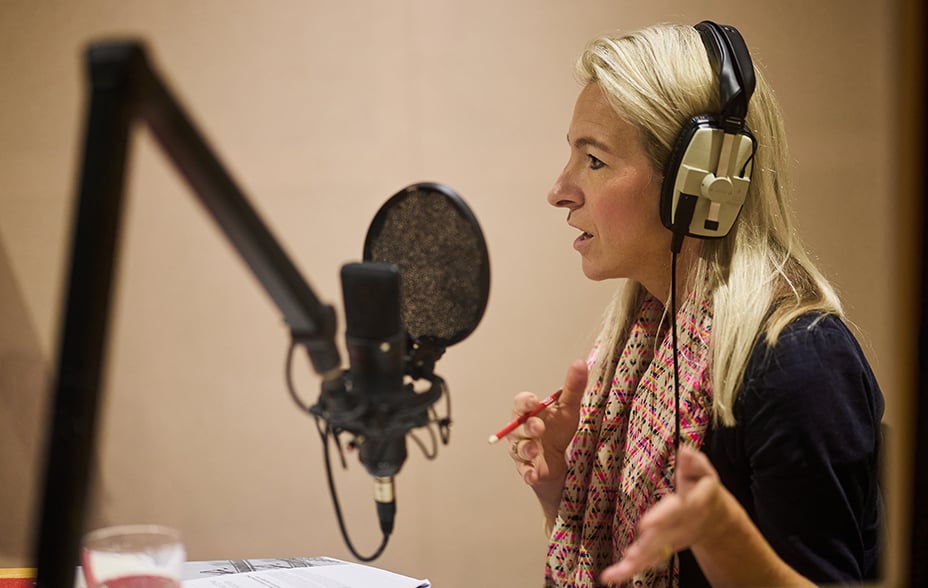Key points:
- The Deep Transitions Project encourages investment managers to seek out the companies that will help bring about a more sustainable world
- The international research programme looks at potential game-changing technologies from the past that failed to thrive and asks why
- Encouraging mental ‘time travelling’ to an imagined better future, Deep Transitions helps investors understand which of today’s niche technologies deserve support

All investment strategies have the potential for profit and loss, capital is at risk. Past performance is not a guide to future returns.
London’s public transport is free, clean and comfortable, making cars unnecessary. Kenya has been rewilded and now grows its crops in sky-scraping urban farms in Nairobi. Data centres have moved to the Moon now that Earth has turned ‘carbon negative’.
Welcome to the world of 2050. These scenarios projecting how things might change for the better are illustrations of the time-travelling mission of the Deep Transitions Project, an international study programme that learns from the past to imagine how transformative investment can help bring about a more sustainable and positive future.
Working backwards from such idealised projections of the future, the Baillie Gifford-supported project’s researchers seek to work out what needs to happen in the present to allow pioneering companies with potentially world-changing products – the flying taxis of Joby Aviation or the precision agricultural equipment made by Deere – become default choices. But what is a ‘deep transition’?
According to Kate Fox, joint manager of Baillie Gifford’s Keystone Positive Change Investment Trust and the Positive Change Investment Fund, a deep transition is a profound shift in the social order bought about by technology. The first was the Industrial Revolution of the 18th Century, when workers left their fields and farms to flock to the new industrial centres, from Hamburg to Manchester to New York.

Kate Fox on Baillie Gifford's podcast, Short briefings on long term thinking
“Great things came from that in terms of prosperity and technological advancement,” Fox says. But there have been some unintended negative consequences: climate change, biodiversity loss, rising inequality. So now another deep transition needs to happen to undo the harm created by the first.”
One way to do that, she explains, is to invest in and support companies whose novel technology and approach can help bring about the next, more positive transition.
Finding ways to do that is the purpose of Deep Transitions, a collaboration between Utrecht University and the University of Sussex. Led by the science and technology historian Johan Schot, the project looks at instilling a set of values and norms that prioritize social and environmental well-being. It does that by looking at how we can change the way we produce and consume in areas as such as food, energy and mobility.
Fox is one of the investors on the project whose interest is in finding the great growth companies of the future. Involvement with the project has furthered her appreciation of the opportunity that change presents to growth investors. “The power of capital can be a really important mechanism for change,” she says.
As Fox relates, Deep Transitions studies the past for examples of technological ‘roads not taken’: potential advances that failed to catch on, but whose ‘might-have-been’ potential can inspire us now. One example is the electric cars of the 1880s that – disastrously for the planet – lost out to their internal combustion cousins.
By studying the dynamics and constraints in the relationship between these thwarted technologies and the dominant models, Deep Transitions learns how to protect and nurture ‘niche’ technologies that lack powerful backers, but have the most potential to promote positive change, in a bid to guide investors towards them.
Examples of “niches within a system” cited by Fox include plant-based meat alternatives promoted by Beyond Meat, or the flying taxis being pioneered by Joby Aviation, both stocks researched by Positive Change.
What excites Fox about Deep Transitions is that it helps identify the ‘frontrunner’ companies that can drive that change. “They could be the companies that will generate attractive investment returns over the coming years and decades.
”Sometimes the companies championing these niche technologies, such as farming machinery company Deere, which is also held by Positive Change, are companies that have long roots in the old system, but which are nurturing the technologies that will boost the next transition.

“The agricultural system is currently very industrialised.” She explains. “It consumes a huge amount of water and is responsible for up to 20 per cent of global emissions. Change needs to happen.
“Deere makes precision agriculture equipment, which uses a combination of sensors and cameras and data to help identity what’s plant and what’s weed so that it can apply herbicides and fertilisers appropriately, which means that we can increase yields by using fewer chemical fertilisers.
“I was intrigued to explore whether this company is contributing to optimising the current industrialised agriculture system or contributing towards transformation. Deere’s precision agriculture equipment can help farmers work in a more nimble and agile manner.”
What now excites Fox is the next generation of the project, “taking all this thinking to actually doing”, applying an experimental approach that includes futuristic scenario planning and learning from the thought experiments and to help educate the next generation of investors, “because this is going to be a multi-decade approach.
“It’s going to take lots of different groups within society if we’re to be successful in addressing the challenges that we face. In some ways I think this transformative investment philosophy is like a niche within the financial system. It’s fragile, but it’s important. We want to be able to contribute towards the transformation of the financial system so that more capital is deployed towards enabling that second, important deep transition”.
Whether or not Deep Transitions’ projections of lunar living and a congestion-free capital come to pass in the future, Fox sees her job as opening up possibilities in the present.
Hear more from Kate Fox by listening to the podcast at bailliegifford.com/podcasts
Important information
The Keystone Positive Change Investment Trust and the Positive Change Fund invest in companies that make a positive impact on society and/or the environment. This means the Fund and Trust won’t invest in certain sectors and companies, limiting the investments available. Therefore, returns may be different to a Fund or Trust that has no such restrictions.
The views expressed in this recording should not be considered as advice or a recommendation to buy, sell or hold a particular investment. The article contains information and opinion on investments that does not constitute independent investment research, and is therefore not subject to the protections afforded to independent research.
Some of the views expressed are not necessarily those of Baillie Gifford. Investment markets and conditions can change rapidly, therefore the views expressed should not be taken as statements of fact nor should reliance be placed on them when making investment decisions.
Baillie Gifford & Co Limited is wholly owned by Baillie Gifford & Co. Both companies are authorised and regulated by the Financial Conduct Authority and are based at: Calton Square, 1 Greenside Row, Edinburgh EH1 3AN.
The investment trusts managed by Baillie Gifford & Co Limited are listed on the London Stock Exchange and are not authorised or regulated by the Financial Conduct Authority. Baillie Gifford & Co Limited is an Authorised Corporate Director of OEICs.
A Key Information Document is available by visiting bailliegifford.com
Ref: 38091 10019876





